Mr. Nguyen Quoc Hiep, Chairman of the Vietnam Association of Construction Contractors, affirmed: Vietnamese enterprises have full capacity, qualifications, and technology to construct high-speed railway projects.
The revolution that "changes the skin and flesh" of construction contractors
Speaking at the seminar "High-speed railway - Opportunities and challenges for Vietnamese enterprises" organized by Giao thong Newspaper this morning (November 19), Mr. Hiep said that the North-South high-speed railway project has a very large construction volume, accounting for more than 33 billion USD.
In Vietnam, there has never been a project with such large capital and scale.
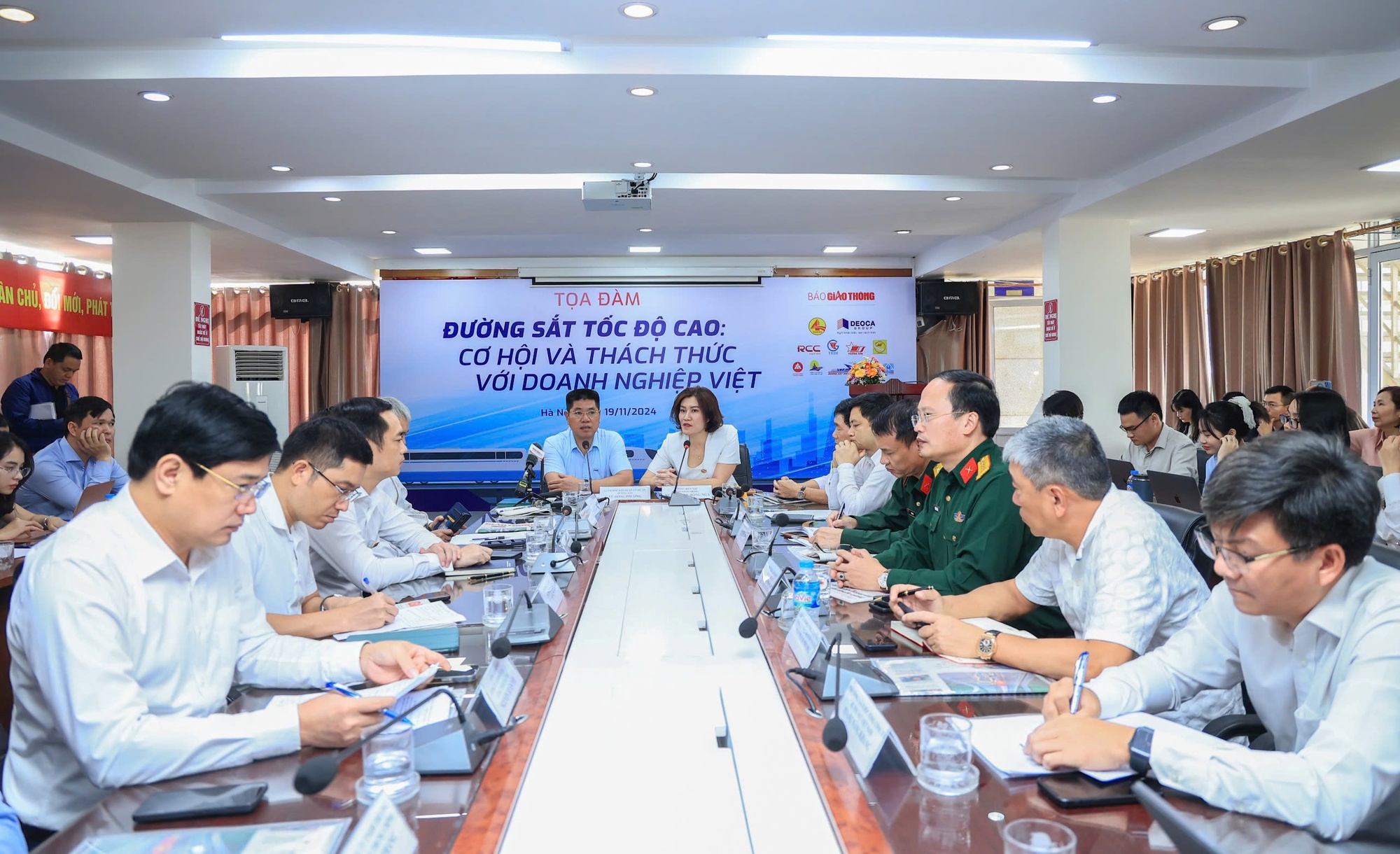
Overview of the seminar "High-speed railway - Opportunities and challenges for Vietnamese enterprises".
"This is a revolution, a change for construction contractors. Although the project is not too difficult in terms of technology, it is very large in scale. Vietnamese contractors need to be aware that this is a new technological battlefield, and need to learn and absorb the most advanced knowledge," said Mr. Hiep.
In terms of policy, Mr. Hiep is concerned that according to the Law on Bidding, when selecting a contractor, the basis for determining the contractor's capacity is that they must have carried out 1-2 projects of equivalent scale.
However, the DSTDC is the first project in Vietnam. If considered according to this criterion, Vietnamese enterprises will find it difficult to participate in the bidding.
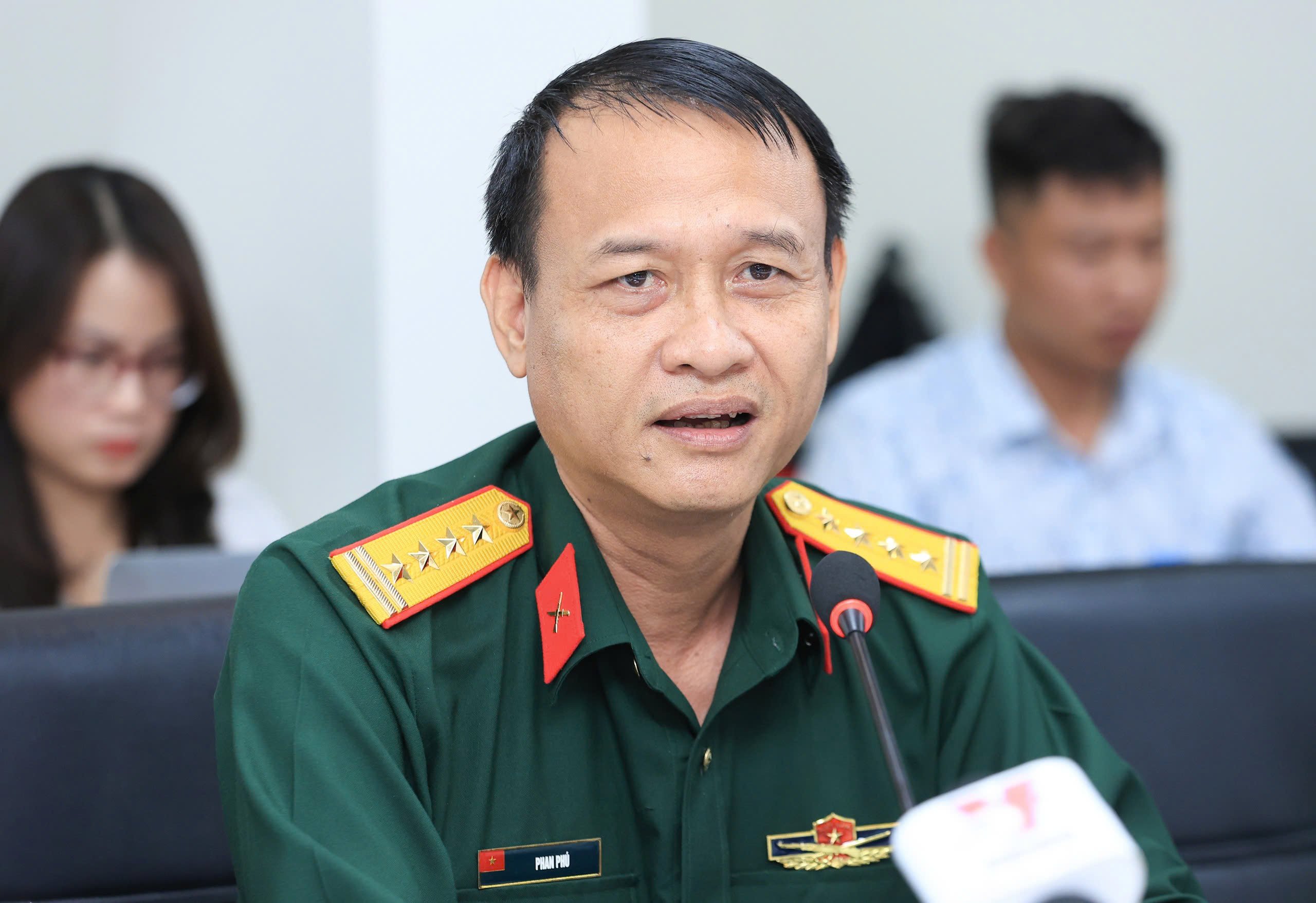
Colonel Phan Phu, General Director of Company 319 - Ministry of National Defense : "For technological equipment, we can use investment capital immediately, but human resources cannot be used overnight. Without good preparation, Vietnamese enterprises will lose right at home. Currently, cooperation between domestic transportation enterprises is something we are very concerned about. We hope that, faced with the huge construction market opportunity from the Dong Nai Railway project, domestic enterprises will join hands instead of eliminating each other. Only cooperation is the only opportunity to participate deeply in the project."
For example, when Vincom was working on the Landmark 81 building in Saigon 7-8 years ago, at that time, there was no contractor in Vietnam that met the criteria of having built an 80-storey building. However, Vincom still decided to choose Coteccons because they assessed that this contractor's capacity could handle it and indeed the project was still successful.
"Therefore, the management agency needs to review the mechanism and policies to create favorable conditions for Vietnamese enterprises to promote their capabilities," said Mr. Hiep, adding that the Association will soon organize a meeting between leading Vietnamese contractors to discuss and make recommendations on the mechanism, in which it is proposed that contractor experience will be one of the criteria for selecting contractors to participate in the project.
Sharing the view that Vietnamese contractors can undertake construction and installation as well as other components, Mr. Nguyen Quang Huy, General Director of Deo Ca Group, affirmed that this is a great opportunity for domestic enterprises. However, Vietnamese enterprises will have to go through many challenges in technology and engineering.
Joint venture, association to not lose at home
Fully confident in the capacity of Vietnamese enterprises, however, Mr. Nguyen Duc Kien, former Head of the Prime Minister's Economic Advisory Group, noted that the connectivity and cooperation for development of Vietnamese enterprises are very weak.
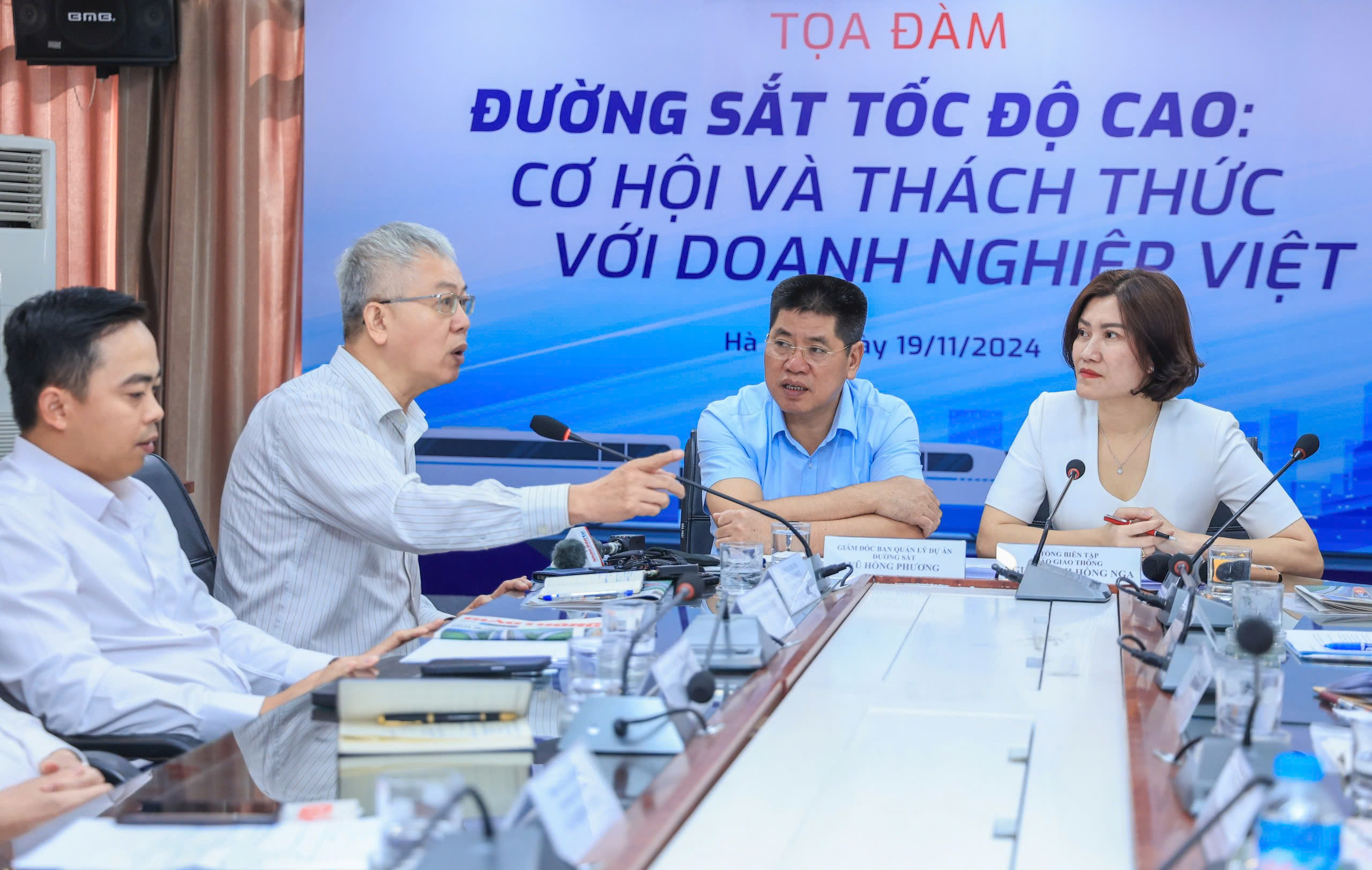
Mr. Nguyen Duc Kien, former Head of the Prime Minister 's Economic Advisory Group, noted that Vietnamese enterprises need to link and cooperate to develop and increase their capacity to participate in projects (Photo: Ta Hai).
If Vietnamese businesses do not proactively cooperate to invest in cutting-edge technology, it will be very difficult to win when the bidding package opens.
"If Vietnamese enterprises do not cooperate and do not invest in technology themselves, they will lose at home. Regarding macro policies that have been carefully prepared, of course, we have not anticipated all the problems that may arise, but I think it will be fine with a team of experienced, capable and determined officials who are determined to contribute to the country. We can handle it, first of all, in terms of infrastructure construction," said Mr. Kien.
Agreeing with Mr. Kien and Mr. Hiep's views on contractor capacity, Colonel Nguyen Tuan Anh, Deputy General Director of Truong Son Construction Corporation, shared: This is a great opportunity for Vietnamese contractors. If not well prepared, Vietnamese businesses will lose right at home.
Currently, Vietnamese contractors' equipment meets the requirements, but when doing DSTDC construction projects, newer technology and more discipline are required, especially the precision of the machinery.
In addition to efforts, businesses need to coordinate with each other. Recently, the North-South Expressway Phase 2 has promoted this very well, this is a bright spot. Previously, construction and installation businesses often competed, but recently there has been good interaction support, this factor needs to be promoted when implementing the DSTDC and other railway systems.
Regarding the complex and specific technical characteristics of high-speed railways, Mr. Dao Ngoc Vinh, General Director of Transport Design Consulting Corporation (Tedi) said that the railway system is different from the road system in that it is more complex and operates as a system, including many components such as infrastructure, signal information, equipment, power supply, etc.
"High-speed railway construction requires absolute precision, no errors are allowed, otherwise it will become a major safety problem," said Mr. Vinh.
However, Tedi's leader also affirmed: Saying so does not mean we cannot do it because current construction enterprises have done many complex projects such as arch bridges, especially large and extremely complex cable-stayed bridges.
For such a large-scale project with such complex technical characteristics, Mr. Mai Thanh Phuong, Chairman of the Board of Directors of Railway Construction Corporation (RCC), said that in order to prepare for the HSR project, it is necessary to pay attention to resources and equipment.
Regarding resources, according to Mr. Phuong, Vietnam is exporting a large amount of labor, so why not import high-quality labor, from management, equipment operating engineers, workers, and create joint ventures with foreign countries to be ready to participate in projects.
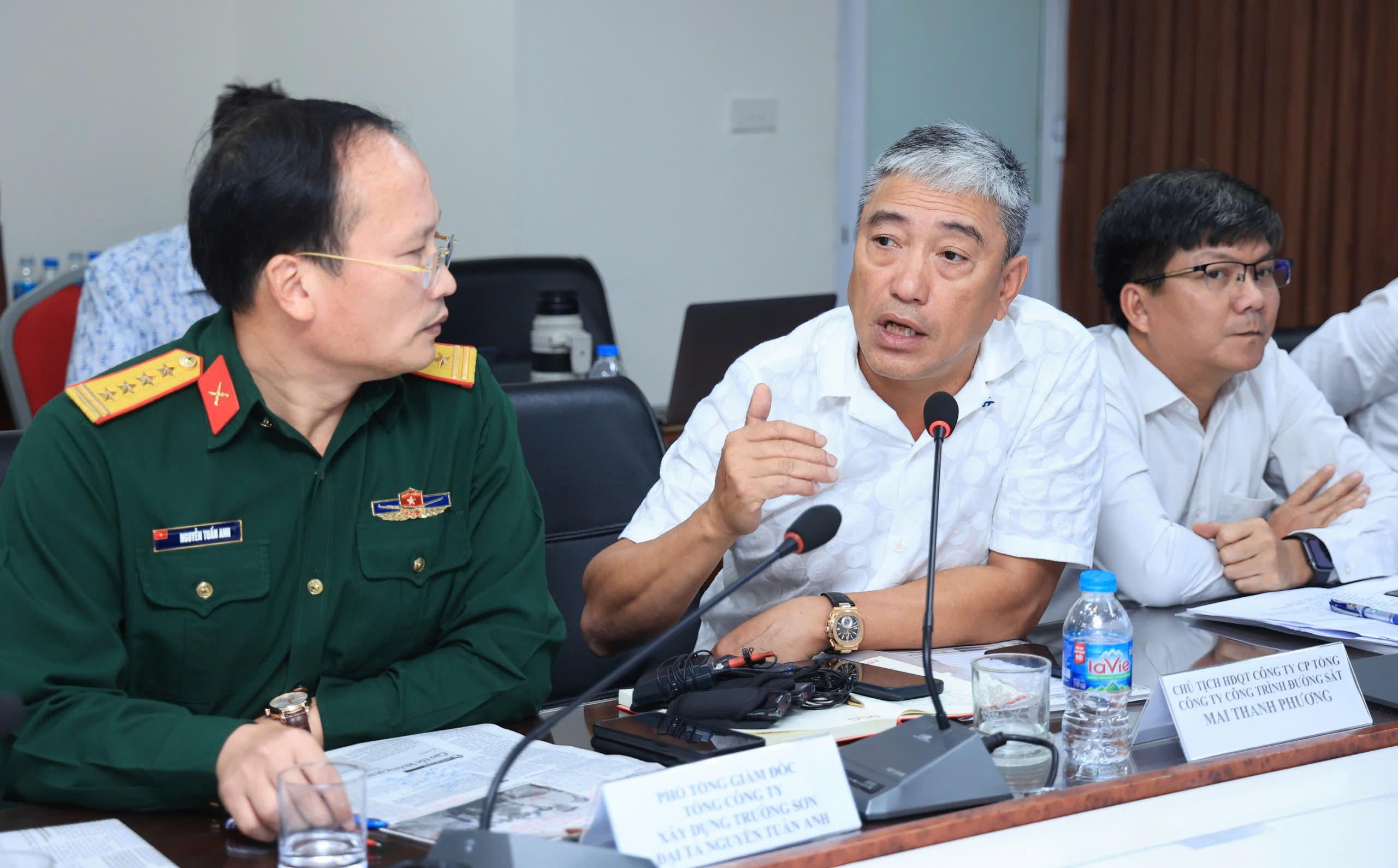
Mr. Mai Thanh Phuong, Chairman of the Board of Directors of Railway Construction Corporation (RCC), raised the issue of considering the option of importing high-quality human resources (Photo: Ta Hai).
Regarding the legal system, it is necessary to refer to the legal procedures for implementing the PPP projects of countries around the world such as China and Japan. When businesses learn, they need to share information with each other, thereby forming a joint venture between Vietnamese contractors.
Right now, it is necessary to focus on research groups and divide work according to the strengths of each unit and business.
Vietnamese enterprises need to focus on their strengths to invest in preparation, take shortcuts and create uniformity and synchronization among participating contractors, preparation work as well as supporting enterprises.
"This is a national product worth putting effort into," said Mr. Phuong.
According to Mr. Phuong, the railway network is the backbone, along with new railway lines planned for the next 30-50 years. Therefore, businesses need to prepare now and focus on meeting the State's requirements.
One of the solutions is to form joint ventures and import foreign human resources and technology. In Vietnam, Vinfast is an example. They can do it, and so can other transportation companies.
Source: https://www.baogiaothong.vn/hinh-thanh-lien-danh-nha-thau-viet-bat-tay-lam-duong-sat-toc-do-cao-192241119182332829.htm



![[Photo] Nearly 3,000 students moved by stories about soldiers](https://vphoto.vietnam.vn/thumb/1200x675/vietnam/resource/IMAGE/2025/5/17/21da57c8241e42438b423eaa37215e0e)

![[Photo] Readers line up to visit the photo exhibition and receive a special publication commemorating the 135th birthday of President Ho Chi Minh at Nhan Dan Newspaper](https://vphoto.vietnam.vn/thumb/1200x675/vietnam/resource/IMAGE/2025/5/17/85b3197fc6bd43e6a9ee4db15101005b)














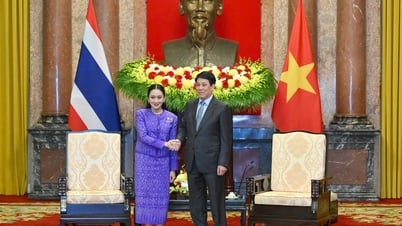

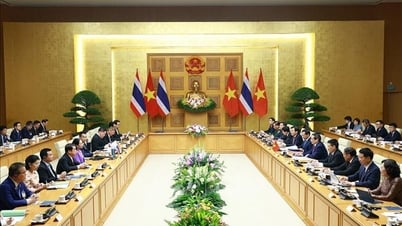


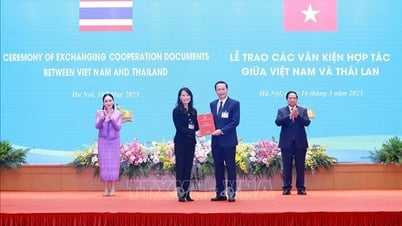




























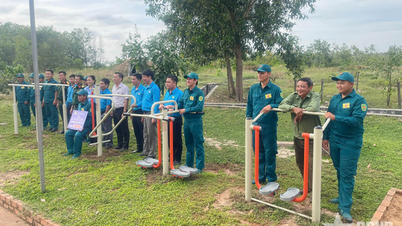











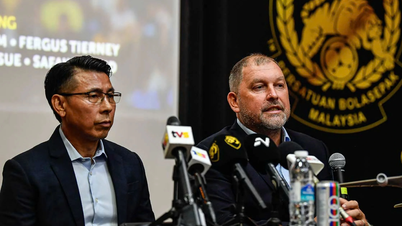



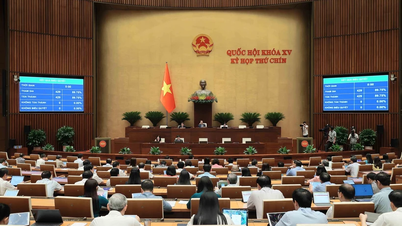











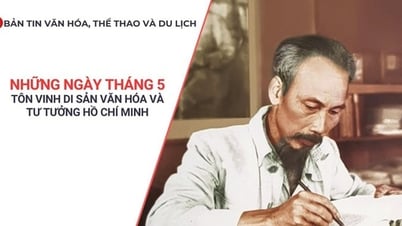
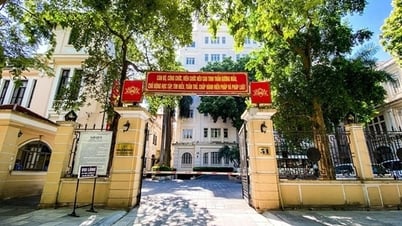







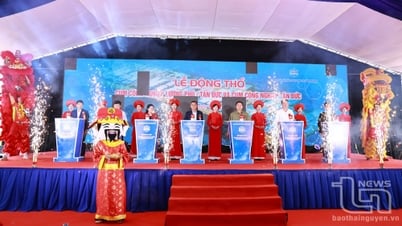













Comment (0)